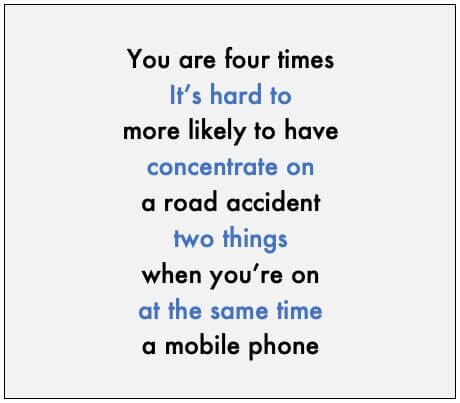Being successful in uncertain times

One of the impacts that Covid-19 is having is that we all need to operate in an uncertain environment. I have a perspective on working amongst uncertainty that I hope is useful to share.
I spent over a decade working with organisations in distress. I then survived a rare and aggressive form of cancer where I needed to be in isolation for nearly a year.
Now, I am a qualified executive coach who works with people (and teams) in uncertain and volatile environments.
My intent is to share some themes that I have seen in those who are continually successful in uncertain times.
I imagine that what I share will serve as a reminder of things that you already do well. If you are struggling, then here are some things you can try. If they work, then dial them up and keep adding to what works for you. If they don’t work, then a successful mindset can be to keep looking until you do find things that work for you.
Just to manage expectations: there is no simple formula for success.
In nearly 9 years of looking I haven’t found a simple, easy formula to guarantee success in uncertainty. The following is based on research, elements of psychology, personal experience and what I have noticed in my coaching practice. If you want to add to my thinking I would love to hear from you — feel free to leave a comment at the end of this post.
So what have I found…
Those that are successful in uncertain and volatile environments typically tend to do two things really well. They seem more aware of the context they are operating in, and with that in mind, they make more successful choices.
Here is what you can do to make this possible.
1) Clarify success
Your definition of what “success” is can change when things become uncertain. On a personal level it can help to remember that you get to decide what success means for you. If you have to choose from a list of options which you really don’t like, then you can reframe the decision to be about making the best choice from a selection of “poor options”.
The context may be so bad that projects go wrong or contracts are lost. These are outcomes which you would not choose normally. However, if it was completely outside your control, reframing circumstances in a way that enables you to say that “you did what you could, given the circumstances” is one way to be at ease with the outcome so that you can focus on what is next for you.
If things go wrong, being someone who can reflect on what has happened, learn from it and move forward is generally a successful mindset to take. Those who ruminate (a circular thinking pattern which seemingly has no end) tend to get stuck in the past – and struggle to be effective with what is happening now.
2) Focus on what is in your control
In times of uncertainty there can be a larger number of things that move outside our zones of control or influence. Focus your energy on the things that you can control or influence. Acknowledge what is outside your control or influence. Doing this helps clarify where to put your energy and effort.
As you focus on what you can control, do one thing at a time. To understand why, I say that read the paragraph below line by line. Then read it colour by colour.

Some good examples of when you may have reached an unhelpful state are when you find yourself with two or more half drafted emails open at once, or you find yourself thinking about everything on your to do list (inside and outside work) at once.
3) Be aware of how you are feeling
In an ideal world we would be finding a balance between panic on one extreme, and being too laid back at the other.
In a state of panic, or frantic activity, our brains are flooded with chemicals which get in the way of us accessing all of our mental capacity.
Being too laid back means we ignore (consciously or not) important facts. Both ends of the spectrum mean we aren’t enabling ourselves to make the best decisions.
The best state is being alert and focussed.
There are some practical things you can do to help you become alert / focussed. If you are moving towards a more panicked state of mind, doing a breathing exercise stimulates our sympathetic nervous system which relaxes us. Be conscious of what creates panic for you.
4) Make clear choices (and be clear why)
Make a choice about what you do, and in what order. This should mean you are doing the right thing, at the right time, with the right people.
In an uncertain environment a clear choice to defer a decision can be effective as long as its for a specific reason (for example waiting for more information). Letting things drift as you are unsure what to do is not a viable long term solution.
The successful are quickest to adapt when their priorities change – and they can always clearly explain why they have changed.
5) Be aware of what’s going on around you
Making a decision in the absence of detailed data can make some people feel uncomfortable. One aspect of uncertainty is that you cannot get a full picture – so it’s about doing what you can to get information but not getting stuck in wanting more.
The most successful people are clear they have sought what they can, and understand where they can’t get more — and then move forward to making a decision.
If you add volatility to the uncertainty it creates a mix that, in my experience, not many of us actively look for or lean into. Volatility can mean that what was previously a good course of action is no longer appropriate. In that case, the successful find the balance between altering their approach or opinion when it is right to do so, but not changing it so often that they can’t get anything done.
6) Look to understand what other people feel. Acknowledge it.
Unless you work in a vacuum, you will need to work with others. People respond to uncertainty in different ways. If someone is overwhelmed with anxiety, there is no point in asking them to do more.
Conversely, if someone is performing well and wants to do more, let them. People can move from one emotional state to another in a short timeframe. So again, it’s about being aware of changes as they happen around and within you.
Don’t assume you know what someone is feeling. There are lots of ways to find out how people are. With some you can ask. They will be grateful you asked and tell you. Others may not be as open. For some, anxiety is a sign of weakness and they may not want to share with you. There are other ways to get “data” on how people are feeling. Pay attention to body language, changes in patterns of behaviour (e.g. more / less frequent interaction) or tone of voice.
Acknowledging other peoples’ feelings (and sharing your own) establishes rapport and trust. It helps build your relationship with people, and stronger relationships normally drive better outcomes. If those around you are feeling anxious, you can help reduce their anxiety by letting them feel heard.
7) Look to understand what other people are trying to get done
In times of uncertainty, we tend to focus on what we feel is important and most of us are measured on outputs (sales, reports, opinions).
Look to understand what other people are trying to achieve. This gives you an additional insight (on top of how they feel) on what they may be doing and why.
If their successes can align to yours, then it can create momentum to benefit you both. If their success is different to yours, bringing that to light quickly can help you make decisions sooner.
A greater understanding of what they want to get done enables you to make more informed choices to drive your own success.
And finally….
There are amazing books, articles and podcasts on all of the above if you want to dive deeper.
If experiencing uncertainty is affecting you at a deeper level (e.g trouble sleeping, inability to focus or anxiety that feels unmanageable) there are lots of tools already available that I would encourage you to seek out, as they really can help.
Given what’s going on at the moment, I hope that reading this post can help you feel more comfortable in being able to navigate through — and drive success amongst — the uncertainty ahead.
About the author
Paul Golding is a faculty member of our accredited coach training courses. He is an experienced executive coach recognised for working with those facing uncertainty and challenge.

Get free coaching and mindfulness resources
Join our community for free and get a host of free resources, including our guide to becoming a professional coach, access to our coaching webinars, a free mindfulness e-kit and much more.
